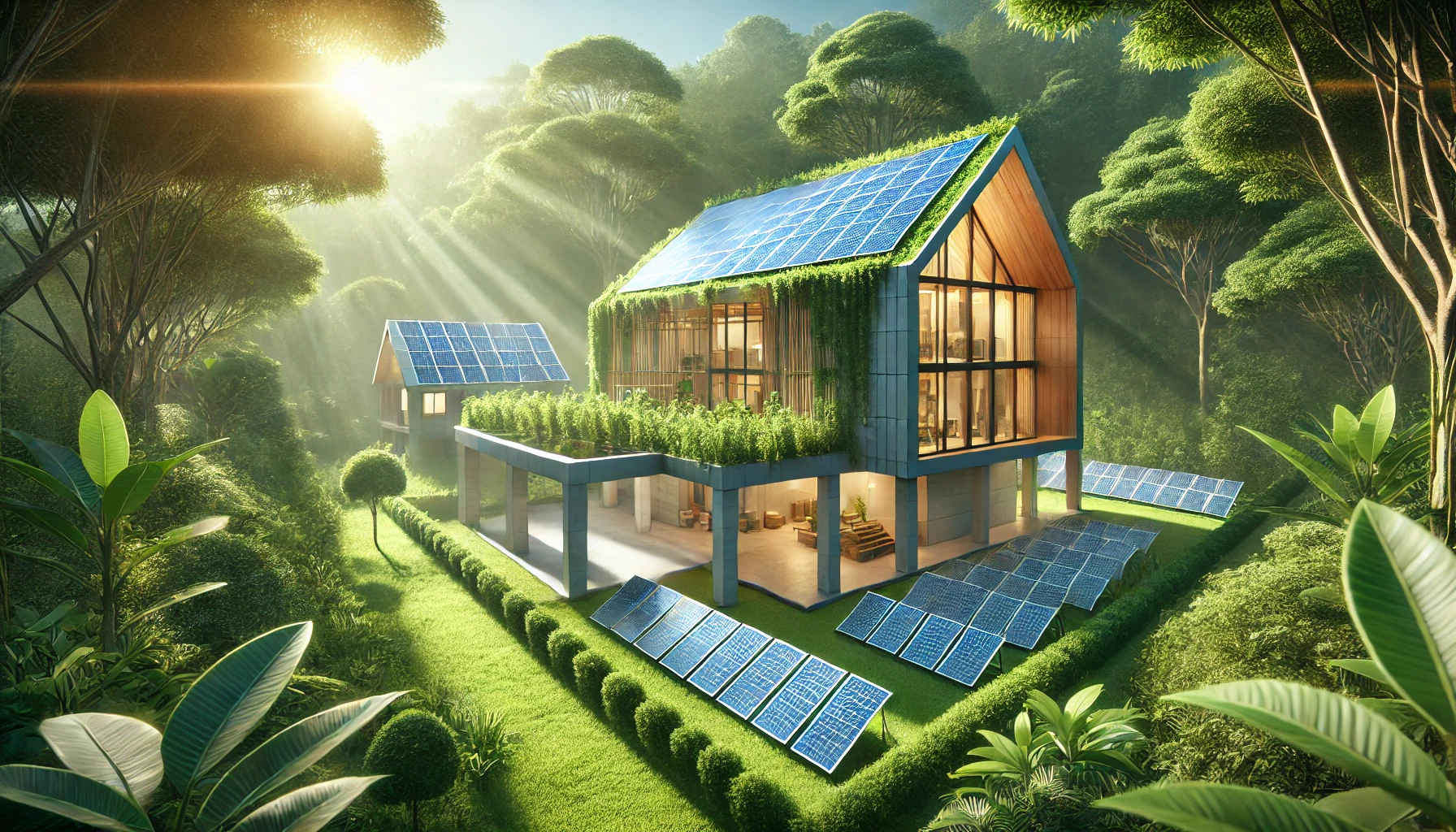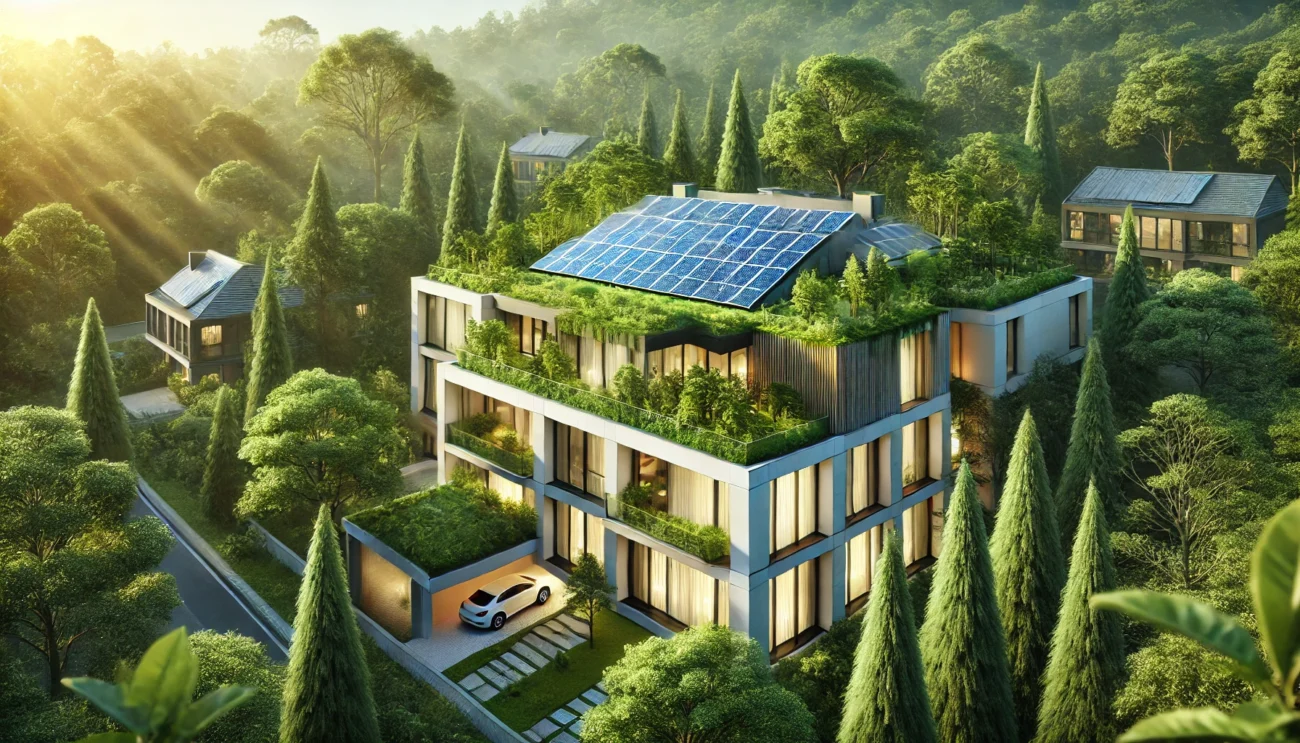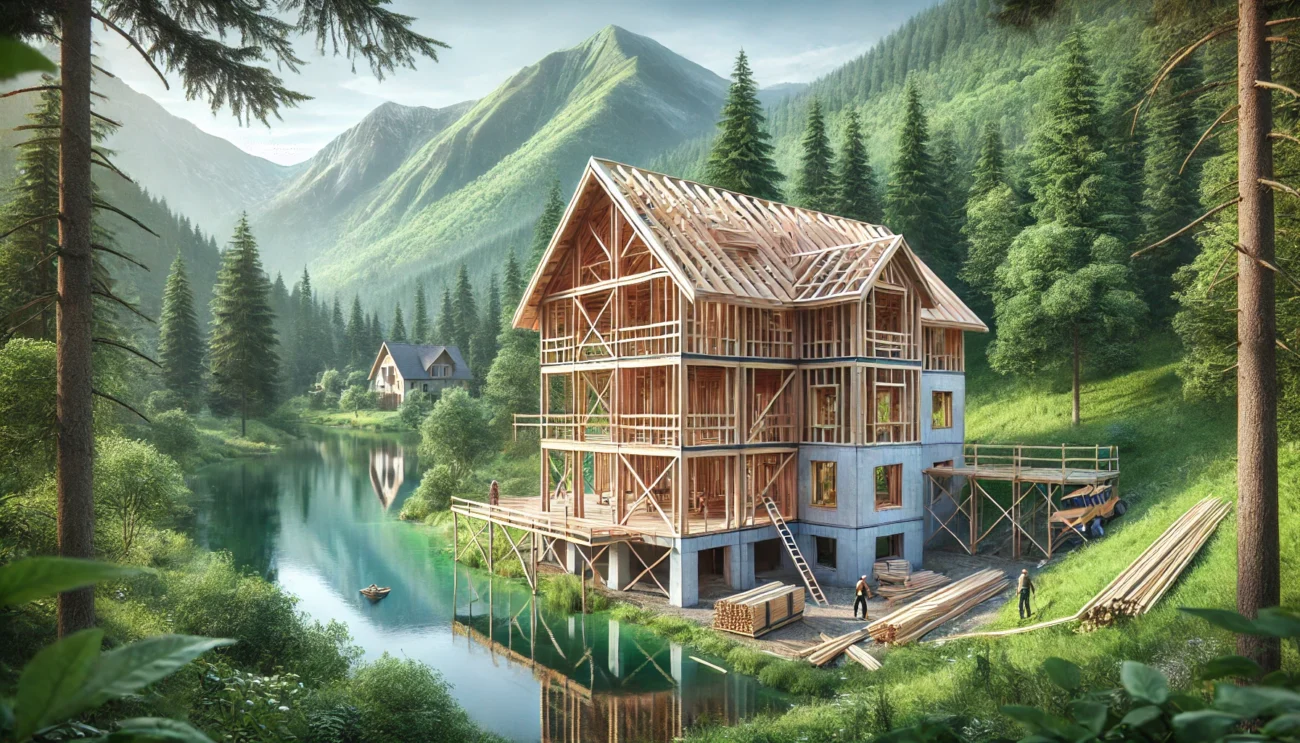Blog
Top 5 subsidies to build an Eco-Housing in 2025

There is no longer any doubt that eco-construction is one of the long-term solutions that will enable our society to meet the challenge of climate change. But let’s be honest, building an eco-home can represent a substantial initial cost! Fortunately, there are a number of financial aids available to lighten the load.
Faced with the challenges of climate change and rising energy costs, a number of grants are available in France to encourage the construction or renovation of eco-housing. The aim of these grants is to reduce the environmental impact of housing while making ecological projects more financially accessible.
In this article, we explore the 5 main subsidies available in 2025 for building or renovating your home in a sustainable and environmentally-friendly way. Follow the guide to build a greener future without sacrificing your wallet!
Summary
MaPrimeRénov’

What is this ?
MaPrimeRénov’ remains one of the most popular and accessible forms of assistance for financing work to improve the energy performance of homes. In 2024, this grant has been strengthened to encourage ambitious renovations, particularly those offering significant energy savings. And the good news is that certain provisions that were due to expire in December 2024 have been extended until 31 December 2025! So now’s the time to take advantage! Especially as from 2026, the eligibility criteria will be narrowed.
Eligibility requirements:
✅ Available to owner-occupiers, landlords and co-owners.
✅ Compliance with BBC (Bâtiment Basse Consommation) standards.
✅ Financing is available for major renovations and for single-use projects (insulation, heating, ventilation, renewable energy systems, etc.).
Worth noting:
- A ‘supported pathway’ is compulsory for major renovations (improvement of at least two energy classes).
- Can be combined with other grants such as the Eco-PTZ.
- Gesture-based solutions’ (insulation, ventilation, heating, etc.) are eligible without any obligation to install a low-carbon heating or domestic hot water system at the same time. Please note! From 2026, you will have to change your heating or hot water production system to be eligible!
- Single-family homes classified as F or G are eligible for the ‘gesture-based approach’. From 2026, aid will only be granted for major ‘supported path’ renovations.
- You don’t have to provide an DPE to benefit from the PrimeRénov’ scheme. However, it will be compulsory from 1 January 2026.
Amount of aid :
Up to €25,000, depending on your income and the equipment installed. There is a ceiling on the amount of assistance to which you are entitled. To calculate the ceiling, a rate called the ‘capping rate’ is applied according to your level of income: go to the MaPrimeRenov website to calculate the amount of your entitlement.
What will change in 2025 :
- the rate of capping increases for middle- and higher-income households.
- Support is also reduced for households on higher incomes in the case of major ‘supported path’ renovations.
- Subsidies for the installation of wood-burning boilers and stoves are being cut by 30%.
- The cash advance for very low-income households for single-use work has been reduced from 70% to 50%.
Good to know: Condominiums can benefit from specific assistance of up to €25,000 per home, with bonuses if the building is upgraded from the ‘thermal sieve’ category (label F or G) to class D. Please note! As of 1ᵉʳ January 2025, MaPrimeRénov’ Co-ownership will no longer fund projects to install gas boilers.
Zero rate eco-loan (Eco-PTZ)

What is this ?
The Eco-PTZ can be used to finance the remainder of the cost after you have benefited from grants such as MaPrimeRénov’. This interest-free loan is available to all homeowners carrying out energy renovation work.
Eligibility requirements:
✅ The work must be carried out by an RGE (Reconnu Garant de l’Environnement) certified company.
✅ Be an owner-occupier or landlord.
✅ An energy audit is often required.
Amount :
- Up to €50,000 over 20 years for an overall renovation (minimum improvement of 2 energy classes).
- Up to €30,000 over 15 years for one-off renovation work (insulation, heating, etc.).
- Up to €15,000 over 10 years for simple improvements.
- Up to €10,000 over 10 years for environmentally-friendly non-collective sanitation.
Benefits :
No interest to repay.
Can be combined with MaPrimeRénov’ and other grants.
What will change in 2025 :
- Extension of this scheme to households who have received a zero-rate loan (PTZ) for the purchase of their principal residence.
- Simplification of the procedure: notification that MaPrimeRénov’ has been granted can now be used instead of quotes to obtain the eco-PTZ.
⚡ Tip : This tool is particularly useful for avoiding the need to advance major costs associated with the work.
The Buildability Bonus

What is this ?
Some municipalities offer a building bonus: an increase in the authorized building surface area for buildings that meet advanced environmental standards.
Eligibility requirements:
✅ Filing of a building permit with ecological solutions (green roofs, passive buildings, etc.).
✅ Validation by the PLU (Local Urban Planning Plan).
Benefits :
Optimization of your building surface at no additional cost.
Valuation of your real estate assets.
Concrete example : A house with a green roof and insulation made from natural materials can benefit from this bonus.
The Green Fund

What is this ?
Created in 2023 and made permanent in 2024, the Green Fund aims to support projects with strong environmental ambition. Although it is mainly aimed at local authorities, it can also finance private initiatives in certain cases.
- Goals :
- Encourage green construction.
- Support innovative solutions such as positive energy buildings or those using bio-sourced materials.
- Subsidy rate:
- Up to 80% of the total cost of the project, depending on the environmental criteria met.
Example : This fund can be used to integrate renaturation or climate adaptation solutions into a real estate project
Energy Savings Certificates (ESC)

What is this ?
Energy suppliers also offer bonuses under the CEE scheme, which finances part of the work aimed at reducing energy consumption. This aid can be combined with MaprimeRénov’ and the Éco-PTZ.
Amount :
- Varies depending on the type of work and the savings generated.
Eligible works:
- Thermal insulation (roof, walls, floors).
- Installation of high-performance heating systems (heat pumps, biomass boilers).
Practical advice : To maximize your savings, compare offers between different energy suppliers.
Key points to remember
✅ Aid such as MaPrimeRénov’, the eco-PTZ and the Construction Bonus make ecological construction more accessible.
✅ By combining several systems (CEE, MaPrimeRénov’, Green Fund), it is possible to significantly reduce the total cost of the project.
✅ Local authorities often offer additional subsidies adapted to regional specificities (example: Wood Plan or Solar Plan).
⚡ Administrative procedures can be complex; calling on a Rénov’ support professional often simplifies the process.
Building an eco-home in 2025 is more accessible than ever thanks to these subsidies. However, these aids risk being reduced or even disappearing!
So, take advantage of these measures now to launch your ecological housing project! Contact an RGE expert and find out about subsidies from your local authorities.
And to start your self-build project, your design plan awaits you on Casakub.com!